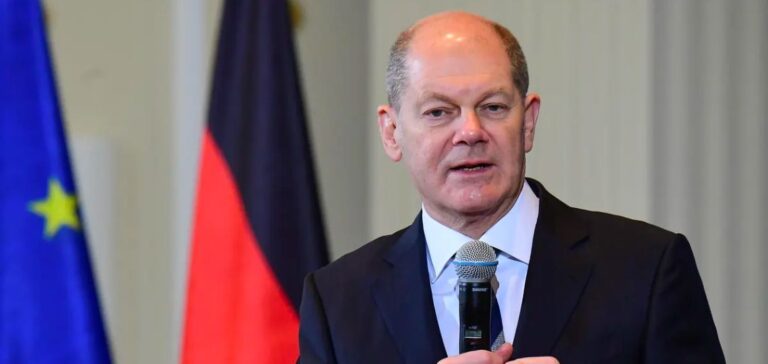Germany’s energy price shield, announced by Chancellor Olaf Scholz to soften the impact of soaring prices, could come into effect in early 2023, according to proposals from the government’s expert panel on Monday.
This tariff shield is the central piece of the 200 billion euro energy “bazooka” announced at the end of September, which has earned Berlin a great deal of criticism from its European partners who denounce a lack of consultation and solidarity.
The first version of the scheme presented on Monday by the experts provides for subsidizing 80% of household consumption from March 2023 until April 2024.
Beyond that volume, individuals would pay the market price for gas.
For large companies, the subsidized quota, with a price cap of 7 euro cents per kilowatt hour, would be limited to 70% of the average normal consumption and would come into effect on January 1.
This proposal caused the prices of energy-intensive stocks on the Frankfurt Stock Exchange, such as the chemical companies BASF and Covestro, to take off.
This new aid package is not “against Europe but in Europe, for Germany and the Germans”, Michael Vassiliadis, head of the chemicals union IGBCE and a member of the commission, observed to the press.
Between now and the entry into force of the shield, estimated to take several months due to its complexity, the experts propose that the government pay in December a new direct aid to households and small businesses to pay gas and heating bills, estimated at a total of 5 billion euros.
Germany, Europe’s largest economy, has been hit hard by the energy crisis affecting the continent as Russia has drastically reduced deliveries of Russian gas on which the country was particularly dependent.
“The existence of thousands of companies is threatened” in Germany, argued the president of the industry lobby BDI at the presentation. “This is not only about the fate of individual companies and their jobs, but about the strength and export success of German industry,” said Siegfried Russwurm.
He stressed that gas prices would certainly not return to their pre-Ukraine invasion levels and that the industry had to get used to this “new normal”.
Experts warned that the future gas price cap should not cause consumers to forego the savings needed to avoid shortages.
“We need to save about 20% of the usual consumption to avoid a tense supply situation,” recalled economist Veronika Grimm, judging that the proposed mechanism would encourage Germans to reduce their consumption to the subsidized amount.
The government will now review the recommendations and should make a decision in the coming weeks.






















